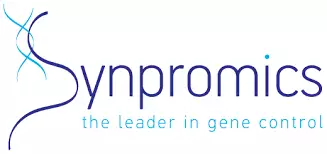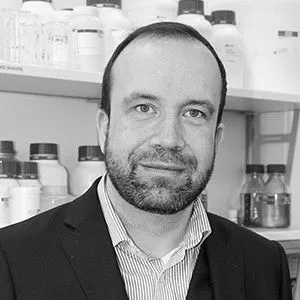Join forces, Parkinson's disease gene therapy enters the development stage
November 30, 2017 Source: WuXi PharmaTech
Window._bd_share_config={ "common":{ "bdSnsKey":{ },"bdText":"","bdMini":"2","bdMiniList":false,"bdPic":"","bdStyle":" 0","bdSize":"16"},"share":{ }};with(document)0[(getElementsByTagName('head')[0]||body).appendChild(createElement('script')) .src='http://bdimg.share.baidu.com/static/api/js/share.js?v=89860593.js?cdnversion='+~(-new Date()/36e5)];Recently, University College London (UCL) and Synpromics announced a collaboration to generate a series of synthetic gene promoters for the central nervous system (CNS) to develop gene therapy for Parkinson's disease.

Parkinson's disease is the second most common chronic progressive neurodegenerative disease in the world, second only to Alzheimer's disease. It is estimated that about 1-2% of the world's 65-year-olds are affected by the disease. As the world ages, the number of people suffering from the disease is likely to increase further. Parkinson's disease is a neurodegenerative disease caused by the gradual loss of certain neurons responsible for the production of dopamine, which can cause a series of symptoms such as impaired exercise, muscle stiffness and tremor.
Currently, levodopa is the most effective drug for the treatment of Parkinson's disease, and the proportion of patients taking the drug is as high as 75%. However, long-term use of this drug may cause severely debilitating exercise capacity fluctuations. This kind of fluctuation is divided into two stages - in the "open" period, the patient's exercise ability is all normal; in the "closed" period, the patient's exercise ability will be significantly reduced, and even walking is difficult. Therefore, as the disease progresses, these patients need additional drugs to cope with and manage the fluctuations in exercise capacity due to taking levodopa.
Synpromics is committed to developing new gene promoters that specifically control the expression of therapeutic genes in different subpopulations of neurons. If the promoter controls gene expression in a subset of neurons, UCL will use this to develop gene therapy for Parkinson's disease. UCL and Synpromics will work together equally in the next two years to create new gene promoters.

â–² Dr. Michael Roberts (Source: Synpromics' official website)
Dr. Michael Roberts, founder and chief scientist of Synpromics, commented: "Strict control of therapeutic genes is an essential element in the development of any successful gene therapy. Synpromics technology provides the best means of achieving this control. This collaboration will enable the company to develop A gene therapy for therapeutic areas where clinical needs have not been well met, and strict genetic control in this area is absolutely necessary. This collaboration also gives us the opportunity to work with UCL, which is one of the few in the world. Actively develop one of the world's leading organizations for gene therapy."

â–² Dr. Simon Waddington (Source: UCL official website)
“We are pleased to work with Genepro's leader Synpromics to develop gene therapy for young Parkinson's disease. Parkinson's disease is the second most common untreated progressive brain disease requiring new treatments. This collaboration We are able to develop tailored gene therapy vectors for untreated brain diseases,†said Dr. Simon Waddington of the UCL Women's Health Institute.
We sincerely hope that this cooperation will go smoothly, and an innovative Parkinson's disease gene therapy will come out soon to benefit patients!
Reference materials:
[1] Synpromics' official website
[2] Synpromics announces collaboration with UCL to develop revolutionary gene therapy for Parkinson's Disease
The generic name of VTM Virus Sampling Tube is a single-use virus sampling tube, which is generally used for the detection and sampling of infectious pathogenic microorganisms in disease control departments and clinical departments. It is suitable for detection and sampling of influenza viruses (including general influenza, highly pathogenic viruses, H1N1 influenza virus, etc.), hand, foot and mouth virus, new coronavirus, measles and rubella and other types of viruses. VTM virus sampling tube can also be used for detection and sampling of Mycoplasma, Chlamydia and Ureaplasma urealyticum.
The virus and related samples in the VTM virus sampling tube should be stored and transported within 48 hours in a refrigerated state (2-8°C). Viruses and related samples can be stored for a long time in -80℃ environment or liquid nitrogen environment. The virus can maintain the activity of the virus in a lower temperature range, reduce the speed of virus decomposition, and improve the positive rate of virus isolation.
The VTM virus sampling tube is generally equipped with a disposable flocking swab. From the appearance point of view, the flocking swab is white and soft. Using this soft brush during the sampling process will make the user feel no foreign body, and it is suitable for different Partial sampling person. Moreover, the flocking swab is designed with a breaking point that conforms to the length of the sampling tube and the natural orifice of the human body, which is not only convenient for sampling but also convenient for transportation of the specimen.
Biomed Vtm Kit,Vtm Test Kit,Saliva Collection Tube,Virus Sample Collection Tube
Jilin Sinoscience Technology Co. LTD , https://www.contoryinstruments.com